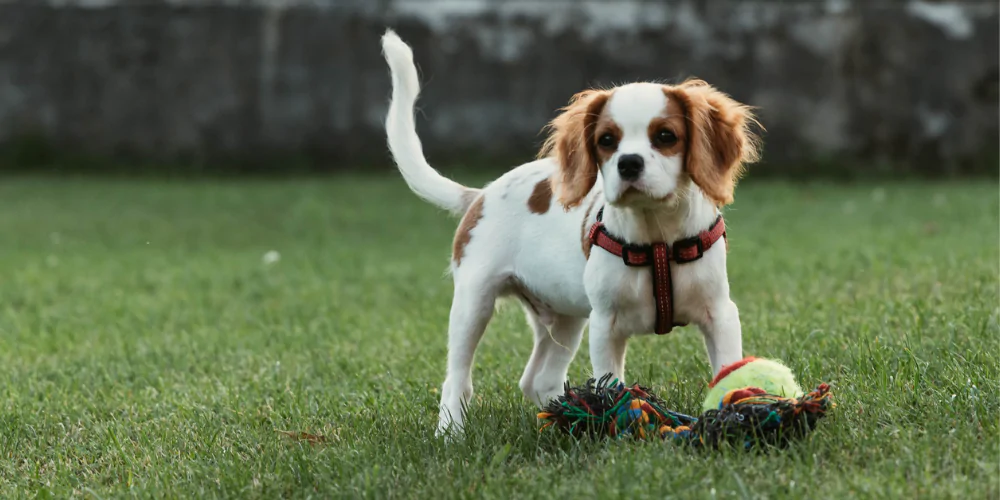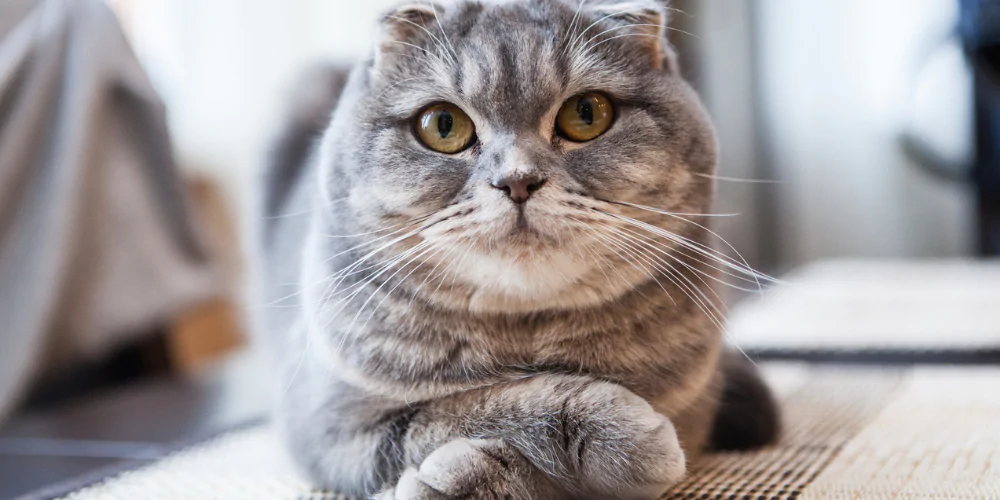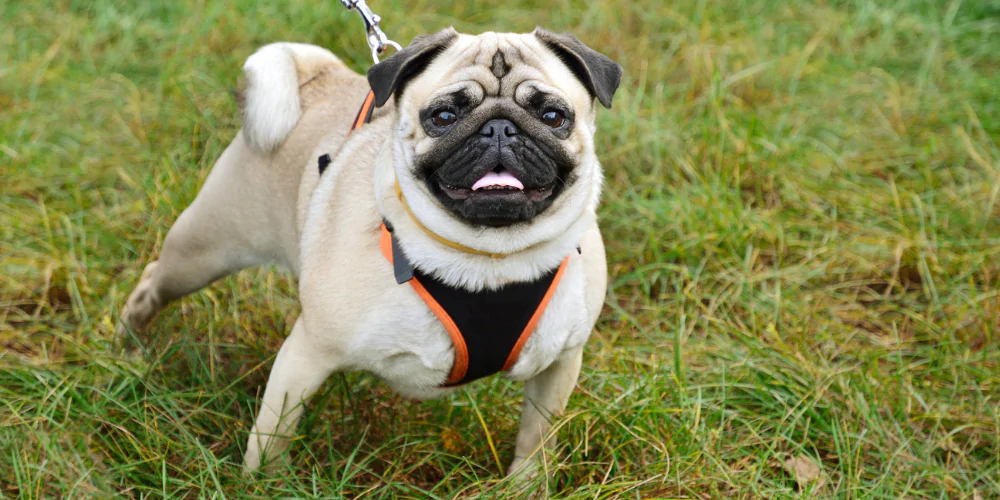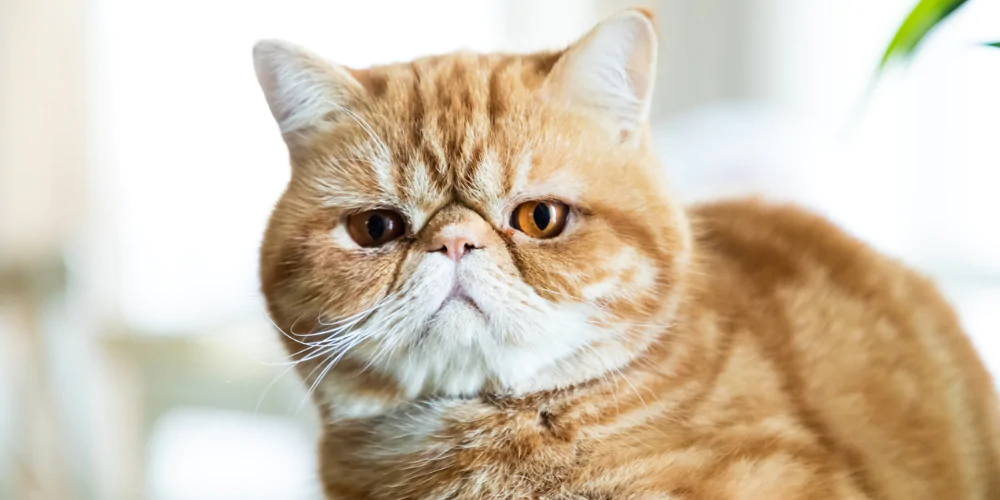
UK flat-faced pet breed ban: What could it mean for my pet?

Allie Simpson
21 July 2022 | 5 minutes read
If you’re a pet parent to a flat-faced breed like the Bulldog, Pug, or Persian, recent headlines about these kinds of pets may have you worried.
Talk has heated up in the news about a possible UK flat-faced breed ban in the future. So let’s take a look at what is going on and how you can support your brachycephalic (flat-faced) pet.
- Why is there talk about banning certain flat-faced pet breeds in the UK?
- Why are experts worried about flat-faced breeds?
> English Bulldogs need severe characteristics breeding out to improve their welfare
> Pugs no longer seen as typical dogs due to health issues - Will my English Bulldog or Pug be banned in the UK?
- What can I do to support my flat-faced cat or dog?
- How can I get involved in the wider discussion about brachycephalic pet welfare?

Why is there talk about banning certain flat-faced pet breeds in the UK?
Vets, researchers, and pet charities like RSPCA and Blue Cross have long petitioned for better education on flat-faced breed health issues.
In February 2022, Oslo District Court ruled that breeding Cavalier King Charles Spaniels and English Bulldogs breached Norway’s animal welfare legislation.
And new studies in 2022 – including several from the Royal Veterinary College – also highlight the critical health issues faced by brachycephalic breeds.
All of this has prompted renewed discussions about what the UK is doing to help improve flat-faced breed welfare.

Why are experts worried about flat-faced breeds?
Flat-faced cat and dogs have surged in popularity in the UK, with French Bulldog ownership showing the sharpest growth. Kennel Club registrations of French Bulldogs suggest there’s now 13 times more Frenchies than there were 10 years ago.
But many owners don’t realise how years of selective breeding have caused flat-faced pets to develop serious health problems.
A 2022 report on UK companion dogs found that French Bulldogs have an average life expectancy of just 4.5 years – largely caused by their health issues. Out of 18 dog breeds in the study, Frenchies, American Bulldogs, English Bulldogs, and Pugs had the shortest average life spans.

> English Bulldogs need severe characteristics breeding out to improve their welfare
The VetCompass study on English Bulldogs in the UK looked at how their exaggerated body shape and features have led to extreme health issues.
English Bulldogs were originally bred as fighting dogs, but the banning of the sport meant they became show dogs in the Victorian era. It was during this time that breeding focused on giving Bulldogs bowed forelegs, a heavier build, and protruding underjaw.
As a direct result of breeding in these physical traits, English Bulldogs are at higher risk of getting skin, eye, breathing, and spinal problems like:
- Skin fold dermatitis
- Cherry eye
- Protruding lower jaw
- Brachycephalic obstructive airway syndrome (BOAS)
- Large bumps between the toes (interdigital cysts)
- Curvature and twisting of the spine (kyphosis/scoliosis)
To allow future English Bulldogs to hear, see, breathe, and walk without distress or discomfort, the study calls for urgent breed management.
This means moving away from an extreme body shape to a more moderate form and features.

> Pugs are no longer seen as typical dogs due to health issues
It’s a similar story when it comes to Pugs and our desire to create a ‘cute’, baby-like look through selective breeding.
The VetCompass study on Pugs in the UK reviewed the health-related welfare challenges for Pugs compared to mainstream breeds. The differences are now so extreme that, from a health perspective, Pugs can no longer be seen as typical dogs.
Pugs have an increased risk of suffering from problems like:
- Obesity
- Upper respiratory tract disorders
- Brachycephalic obstructive airway syndrome (BOAS)
- Slow or difficult labour
- Open sores on the cornea

Will my English Bulldog or Pug be banned in the UK?
It can feel scary when you see the word ‘ban’ mentioned alongside your pet’s breed.
But vets and pet charities are not currently asking for a complete ban on English Bulldogs, Pugs, and other flat-faced breeds.
Instead, the aim of sharing these studies, petitions, and campaigns is to stop poor breeding practices. Examples of this include the Kennel Club’s breed health and conservation plans (BHCPs) and Blue Cross’ #endthetrend campaign (end advertising with flat-faced pets).
These organisations want to see healthier versions of flat-faced cats and dogs to give them a better quality of life.

What can I do to support my flat-faced cat or dog?
Understanding what health problems your flat-faced pet may be dealing with is the first step to supporting their wellbeing.
If you’re not sure whether your pet has brachycephalic syndrome or how severe their symptoms are, think about speaking with your vet.
You can also check out this guide on what to know about brachycephalic pets for more info about the condition and ways to manage their symptoms.
Your flat-faced cat or dog will need extra love and care to help keep them as healthy as possible.
This also means making sure you have pet insurance with the right limits to suit your and your pet’s needs. As nobody wants to be lumped with large vet bills if the worst does happen.

How can I get involved in the wider discussion about brachycephalic pet welfare?
Research and campaigning in the pet community show that change is needed to improve the welfare of flat-faced breeds. It’s a big challenge that needs involvement from many groups including the government, vets, breeders, and pet owners.
Ways you could join in the conversation include:
- Telling friends and family about brachycephalic syndrome, especially if they’re thinking about getting a flat-faced pet
- Sharing your knowledge about the condition with local pet groups
- Only approaching ethical and responsible breeders who are breeding the healthiest of flat-faced pets
- Thinking carefully about whether breeding your flat-faced pet is a good idea, especially if they have more severe symptoms
- Getting involved in petitions and campaigns which fight for healthy breeding of brachycephalic pets
See if your brachycephalic pet’s pre-existing conditions could be covered with a pet insurance quote from Petsure.


